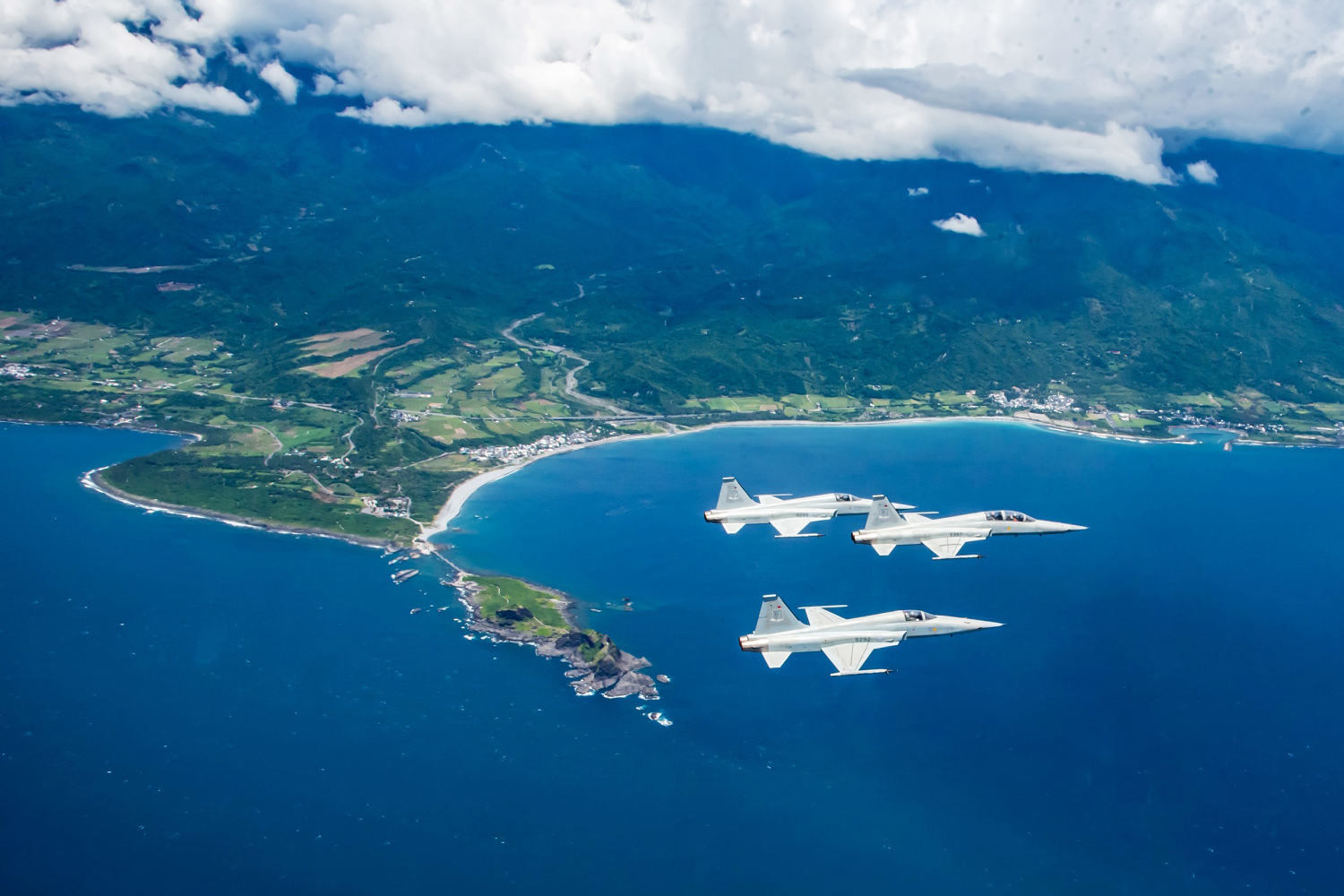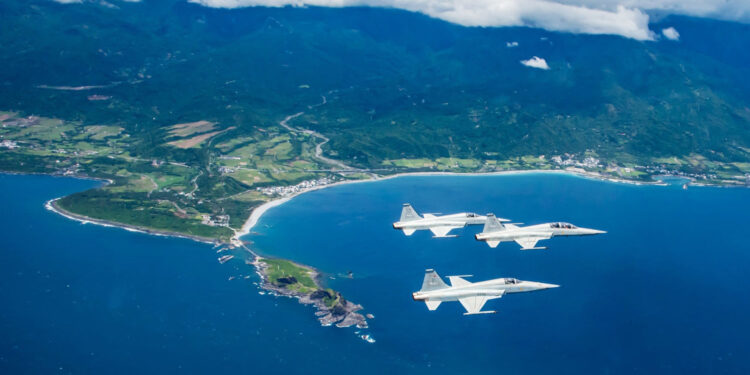
Taiwan said Thursday that it was closely watching the Chinese military, which it said posed a rising threat to the region, after a flurry of warplanes passed near the island to join drills with China’s Shandong aircraft carrier in the Pacific.
The Chinese military exercises coincide with a NATO summit in Washington, where a draft communique says China has become a decisive enabler of Russia’s war effort in Ukraine and Beijing continues to pose systemic challenges to Europe and to security.
The Shandong passed close to the Philippines on its way to the Pacific exercises, Taiwan’s defense minister said on Wednesday.
In its daily update on Chinese military activity over the past 24 hours, released on Thursday morning, Taiwan’s defense ministry said it had detected 66 Chinese military aircraft around the island.
Of those, 39 passed to the south and southeast of Taiwan, the ministry said. On Wednesday the ministry said it had detected 36 aircraft heading to the Western Pacific to carry out drills with the Shandong.
Taiwan’s defense ministry released two pictures, a grainy black-and-white image of a Chinese J-16 fighter and a color image of a nuclear-capable H-6 bomber, which it said were taken recently, but did not say exactly where or when.
“The military has a detailed grasp of the activities in the seas and waters around the Taiwan Strait, including of the Chinese Communists’ aircraft and ships,” ministry spokesperson Sun Li-fang said in a statement.
Taiwan’s forces had tracked the two Chinese warplanes that were photographed, he said.
China’s defense ministry has not responded to requests for comment on the Shandong’s activities.
Speaking to military officers in Taipei, President Lai Ching-te said he will continue to strengthen the island’s defenses.
“The Chinese Communists’ threat to regional stability continues to rise, and its grey zone intrusions into the Taiwan Strait and surrounding areas are also increasing day by day, which are a common challenge to global democracy,” he said, according to a statement from his office.
Taiwan says China has been using “grey zone” tactics that stop short of actual combat to test and pressure Taiwanese forces, including regular coast guard patrols near the Taiwan-controlled Kinmen islands that sit within view of China.
Taiwan has previously reported the Shandong operating near the island, including in December, when it passed through the Taiwan Strait just weeks ahead of Taiwanese elections, though experts say China is still a long way from mastering carrier operations.
Taiwan, which China views as its own territory, has complained of repeated Chinese military activity over the past four years as Beijing seeks to pressure the democratically governed island which rejects China’s sovereignty claims.
A spokesperson for the Chinese mission to the European Union said that the NATO summit’s draft declaration is full of “belligerent rhetoric”, and that the China-related content contains provocations, “lies, incitement and smears”.
Ahead of the summit, Taiwan’s foreign ministry told Reuters it “welcomes NATO’s continuous increase in attention to peace and stability in the Indo-Pacific region in recent years, and its active strengthening of exchanges and interactions with countries in the Indo-Pacific region”.
Taiwan is not the only hot spot security issue involving China — and Russia — in the region.
Japan’s Self Defense Forces said in a statement they had tracked two Russian frigates on Wednesday passing between two of its islands at the western end of its Okinawa chain close to Taiwan, heading southwest toward the Pacific Ocean.
China and the Philippines are locked in a confrontation in the disputed South China Sea, and their encounters have grown more tense as Beijing presses its claims to shoals in Manila’s exclusive economic zone.
U.S. allies Australia and Japan have been stepping up their military activities too.
The Philippine Air Force arrived in northern Australia on Wednesday on its first overseas deployment in six decades for combat practice alongside U.S. and Australian fighter jets.
A Japanese navy destroyer also made a rare entry into China’s territorial waters near Taiwan this month without notifying China, sparking “serious concerns” from Beijing, Japanese media outlets reported late on Wednesday.







